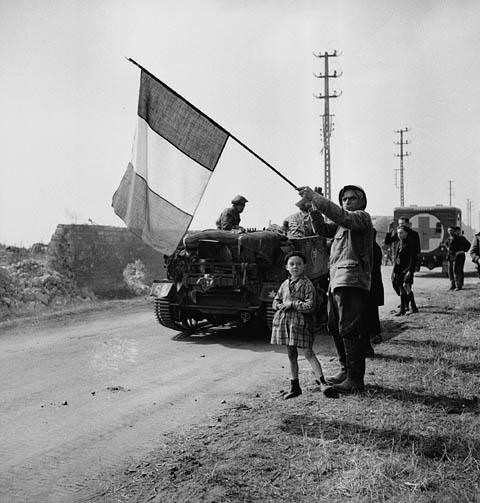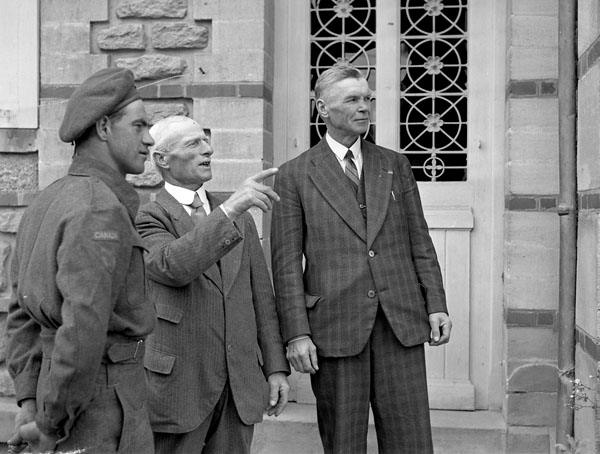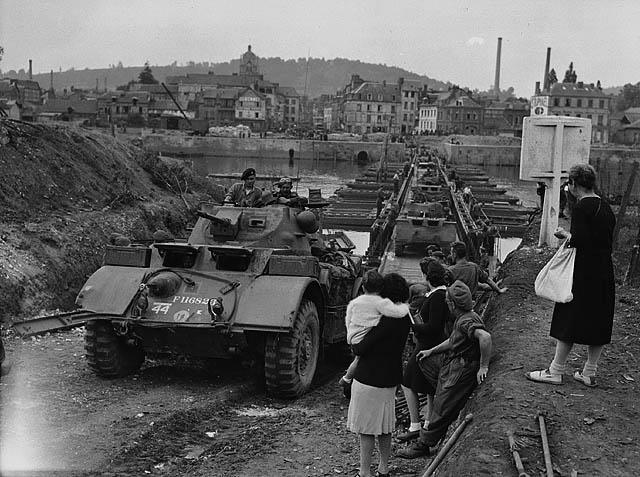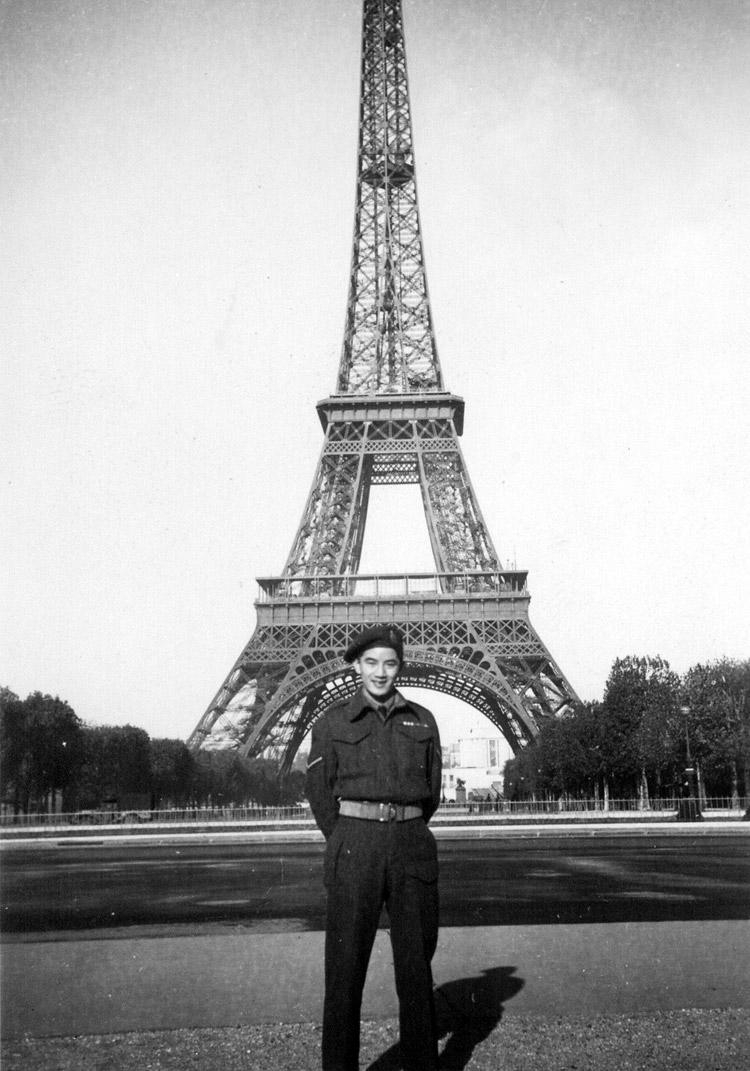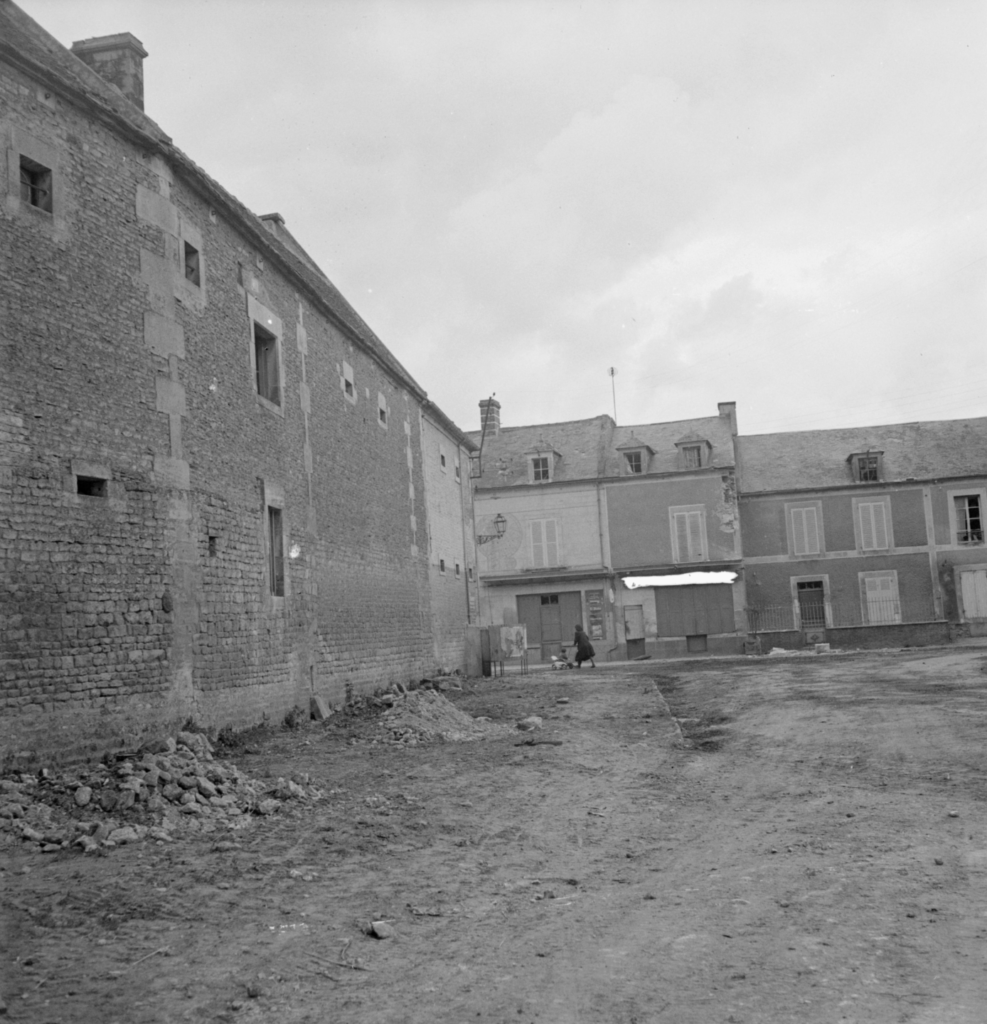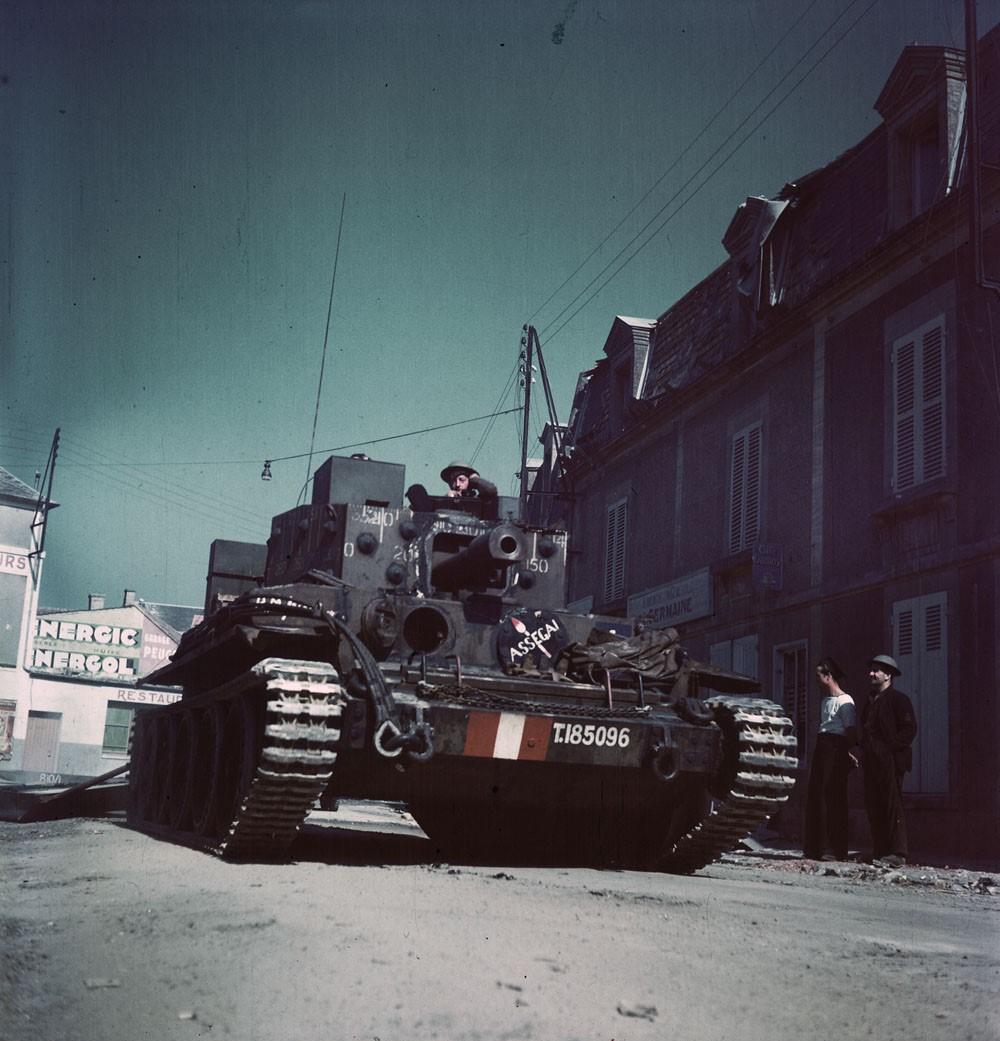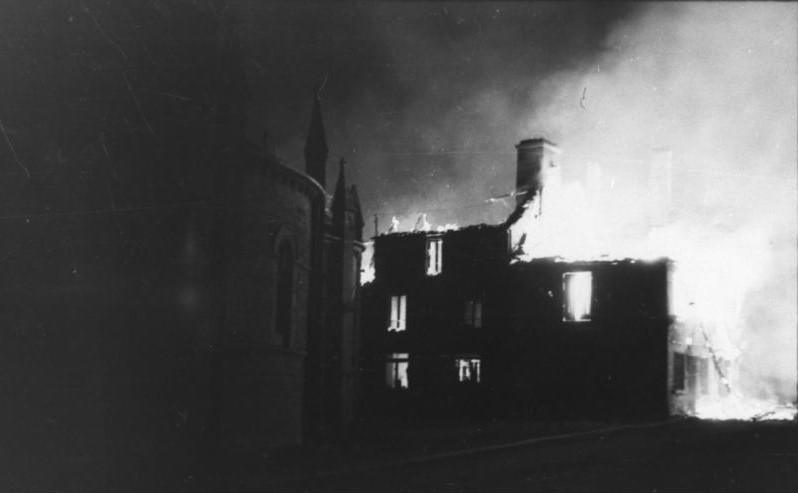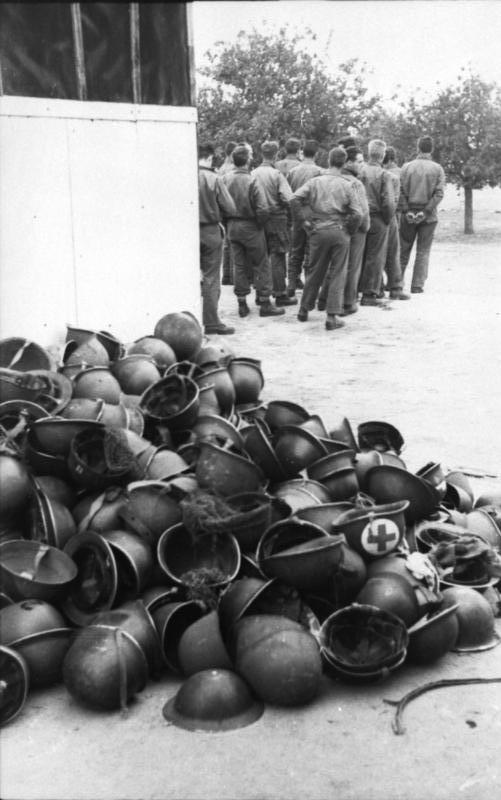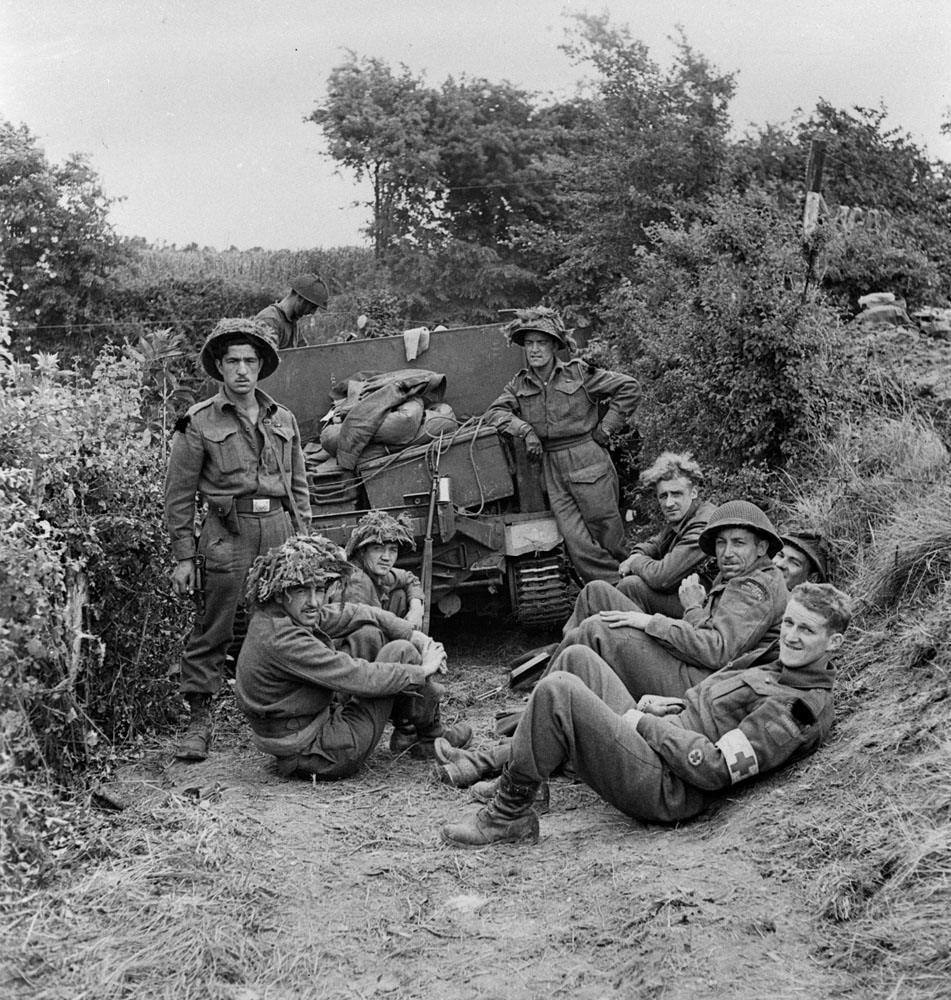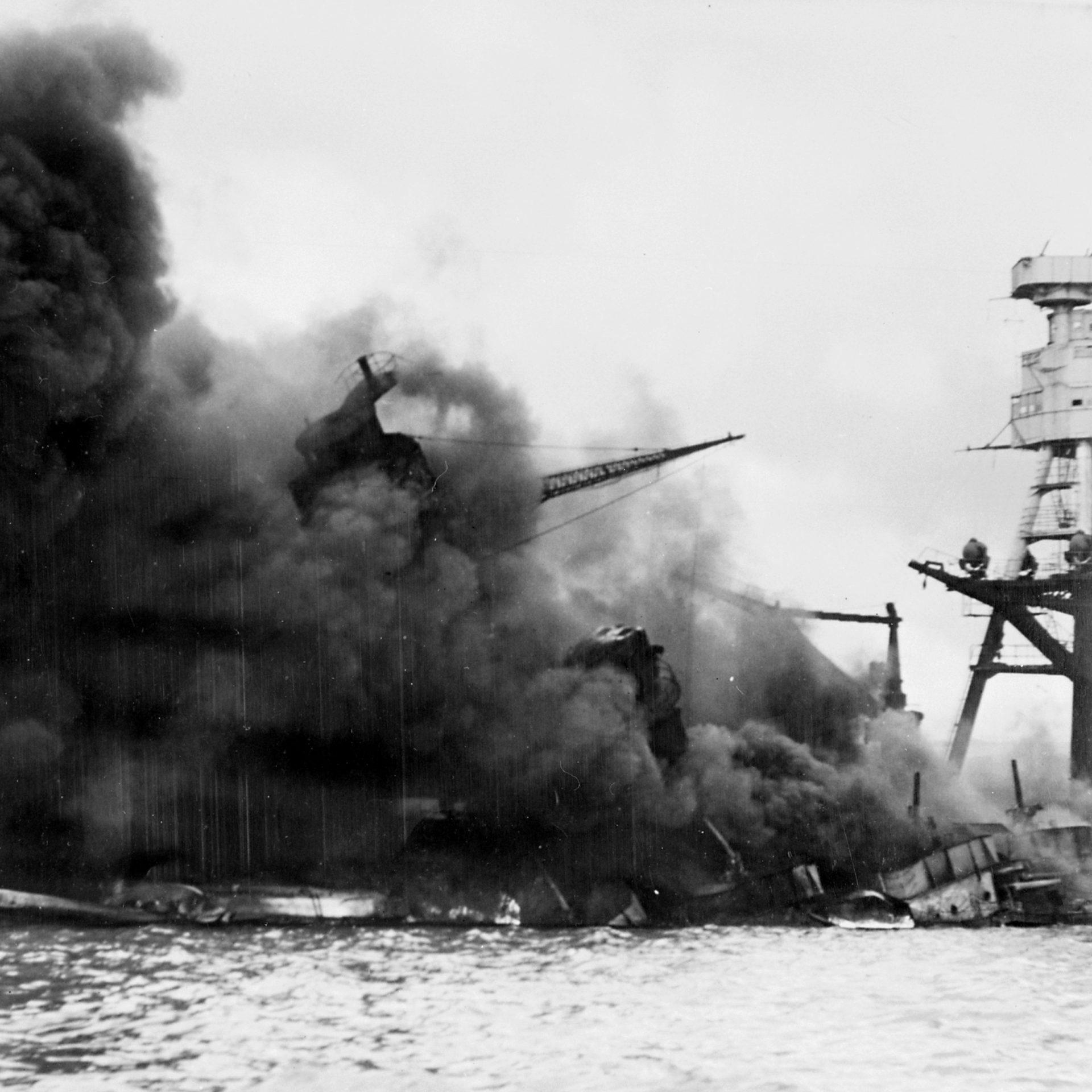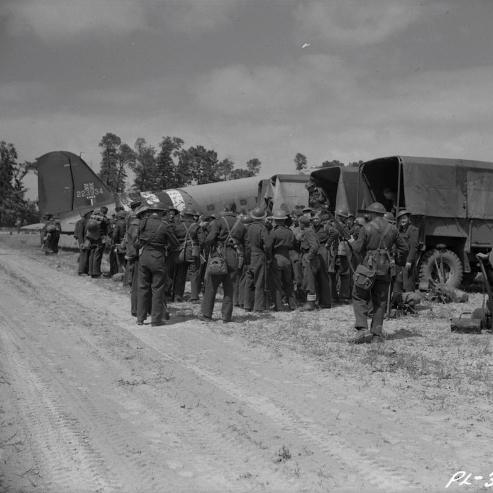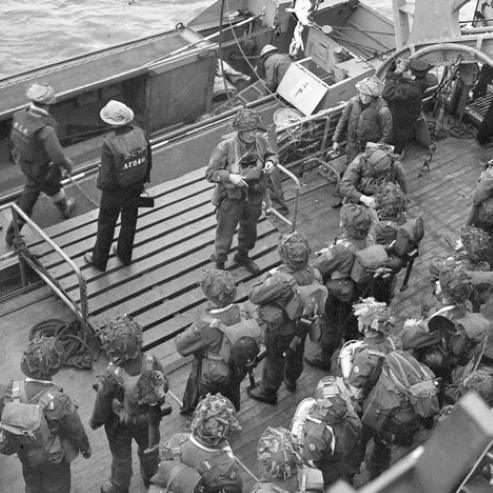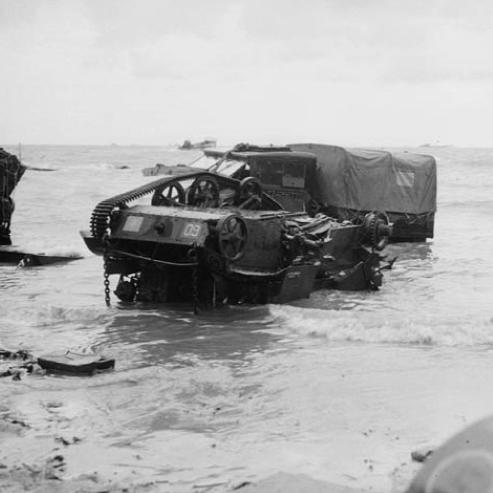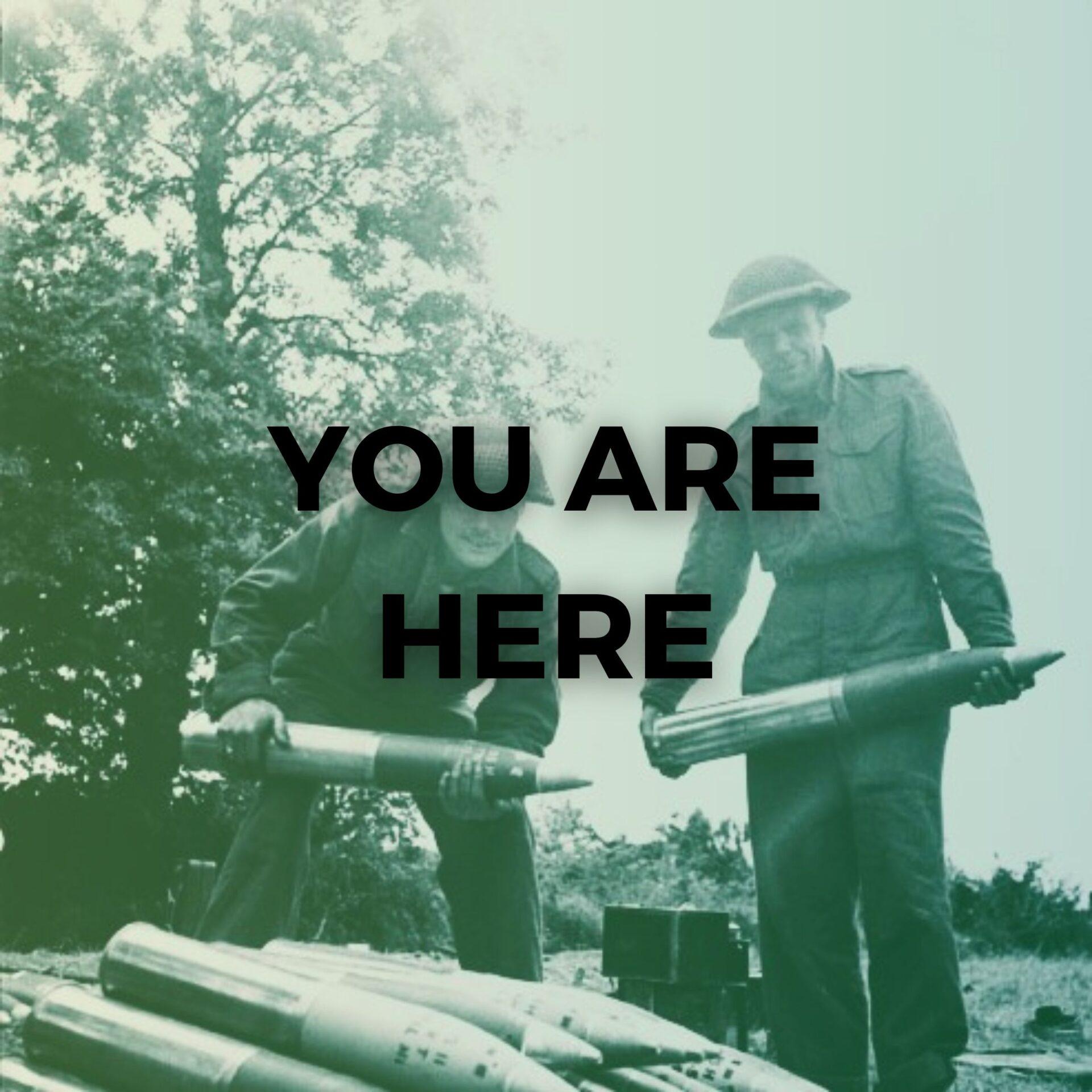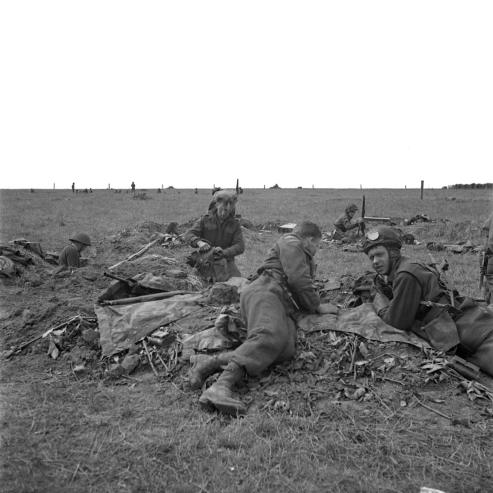BEYOND LIBERATION
THE ALLIES ARRIVE
As documented by their war diary, when Le Régiment de la Chaudière came to the village of Bernières-sur-Mer on June 6, 1944, “The French were quite welcoming, and many cheered us on from the ruins of their homes.”
The French saw the arrival of the Canadians as the first step in their liberation and, beyond that, the end of the war. Wherever they went, the Canadian soldiers were hailed as heroes, and civilians would go up to them to celebrate the victory.
Yet not everyone in France was happy with the Allies’ successes. When news came of the D-Day landings, many active collaborators from the Vichy regime fled Normandy and hid in Germany. Others were publicly humiliated for their collusion with the Germans. One soldier said, “I had an experience […] in Lille in France. There were these people that went into this village and they were cutting these women’s hair off, you know, because they’d been associating with the Germans. And […] they’d just clip it all off and then they’d get a razor and make them all bald-headed” (Robert Bruce, member of the Royal Canadian Army Service Corps, Veterans Affairs Canada).
Frank Wong (1919-2013)
Due to the discriminatory policies of the time, Frank Wong was not considered a Canadian at birth. Despite this, Wong quickly enlisted in the army to prove his loyalty when Japan declared war on Canada. Wong was one of the few Chinese Canadians to be deployed to France and to experience the Normandy landings.
“And I remember going through the country side. It was very exciting because every village we would go past the people would come out and with flowers in their hands and when we stopped they would bring wine and pastries and fruit for us to eat.”
– Frank Wong, mechanic, Veterans Affairs Canada
THE END BEGINS
The French people greatly anticipated their impending liberation. In the weeks leading up to D-Day, word spread of an Allied invasion, and many people looked for signs that the rumours were true.
For the French, their occupiers’ reaction to these reports was very telling about the turn the war was taking. Organizational problems hampered the German defence, and they were soon overwhelmed. After seeing the enemy overrun and encouraged by news of the landings, many civilians realized that the end of the war was fast approaching.
However, the Allies’ arrival did not spell good news for everyone. To liberate the Normandy coast, the American-British air force carried out many bombing raids on German-held positions. Unfortunately, many of these positions were in urban centres with large civilian populations. The Allied bombings wreaked immense damage and caused huge numbers of casualties. The French reaction to these raids was often very mixed, as they both hailed the liberators as heroes and saw them as destroyers.
ENEMY REPRISALS
During the Allied landings, the German army brutally defended its positions and committed many war crimes in the process. Many members of the Wehrmacht stationed in France were battle-hardened veterans of the Eastern Front or Hitler Youth recruits made fanatical by the totalitarian regime. This was particularly true of the German commander Kurt Meyer: known for his serious war crimes in Eastern Europe, he was sent to France to fight the Allied invasion.
No one was spared from the terror exacted by the Germans. During the D-Day landings on June 6, the Wehrmacht executed many Resistance fighters imprisoned in Caen. From June 7 to 17, 1944, the Meyer-commanded SS murdered 158 Canadian prisoners of war in Normandy. The Normandy massacres were some of the worst crimes committed against Canadian soldiers during the war. Civilians were not spared either, and many villages across the country were attacked. An example was Oradour-sur-Glane, where 643 French civilians were massacred on June 10, 1944.
LÉO MAJOR
THE LOSS OF HIS EYE
On June 8, Private Léo Major was on patrol near Caen when he came across a group of four German soldiers. During the skirmish, a phosphorus grenade exploded near Léo, wounding him in the left eye. When told that he should return home, he reportedly replied that he only needed his right eye to shoot. This argument convinced his doctor, who authorized his redeployment to the front. His regiment captured around 60 German prisoners that day.

